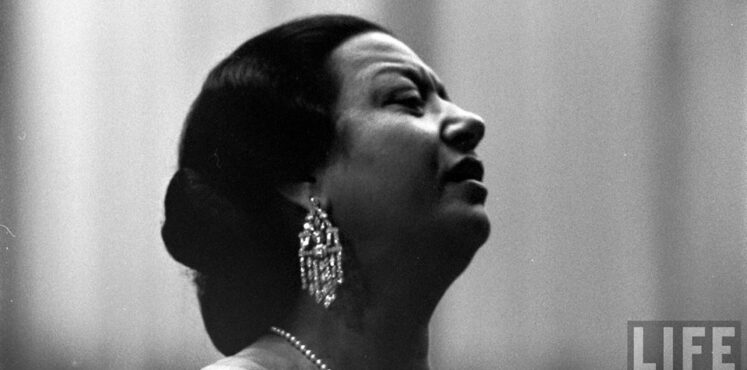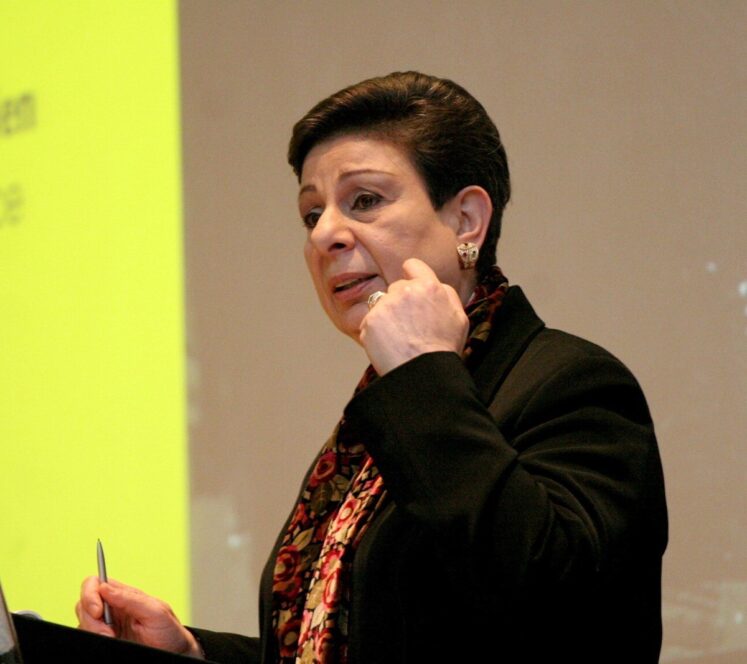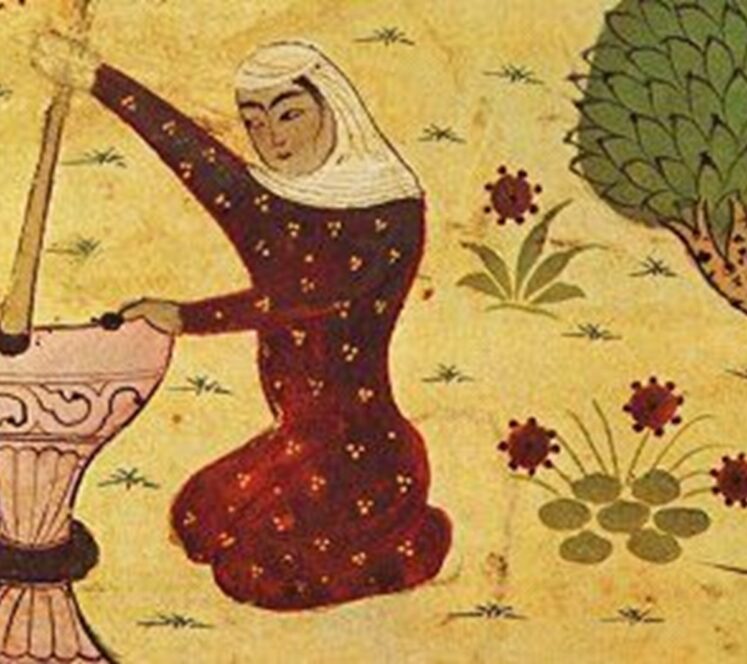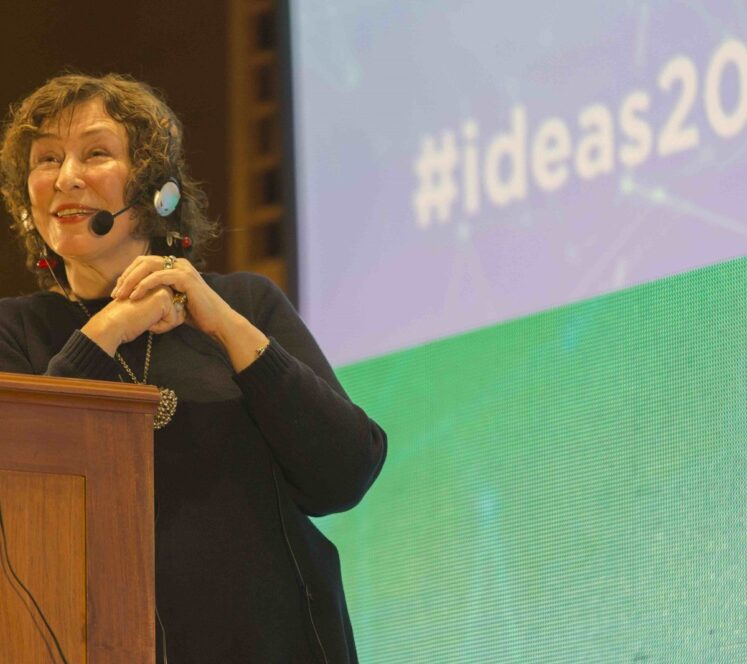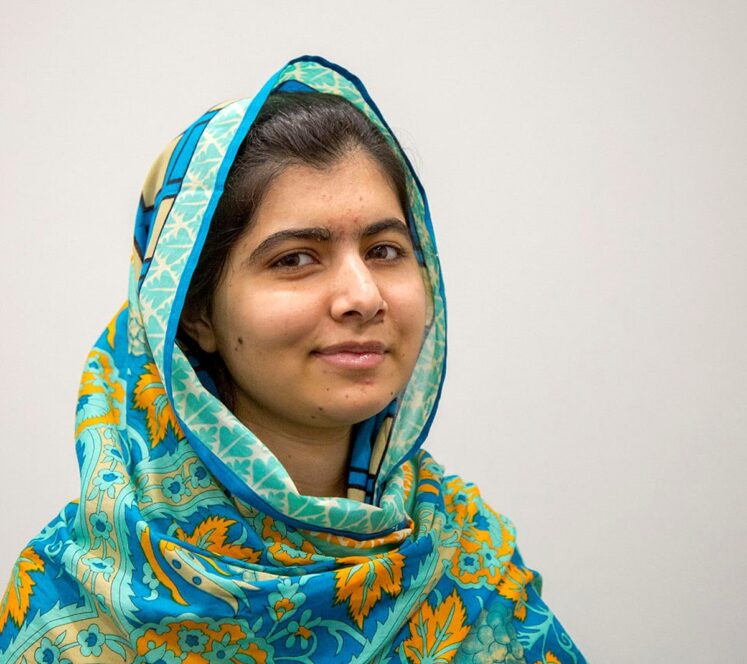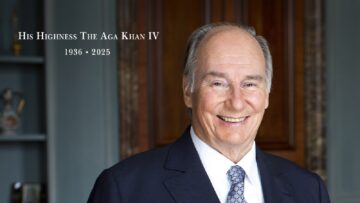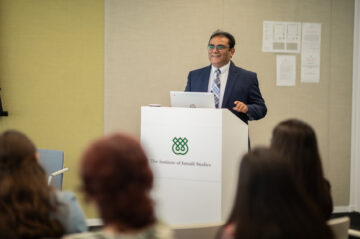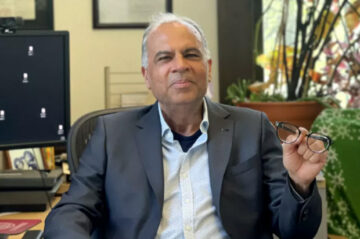For International Women’s Day, we asked IIS staff and students to highlight one woman from Muslim societies and cultures who inspires them—and who they think more people should know about. From scholars to singers to activists to writers, every woman chosen and her life and actions express this year’s theme: “Choose to Challenge”. Here, staff and students tell us why.
Hijab Imtiaz Ali
Chosen by Tara Woolnough, Head of Publications and Operations, DARP
“Hailing from an aristocratic family in Hyderabad, Hijab was a writer and editor, well-known in Urdu literature for her romantic fiction. Her writing career began while still a child and spanned many decades, culminating in the novel Pagal Khana (Madhouse). Remarkably, she was also the first Muslim woman to obtain a pilot’s licence, in 1936.
Hijab was one of a kind! My good friend Sascha Akhtar introduced me to this formidable figure via her translations from the Urdu (a language of which I know not a smidgeon, unfortunately) of Hijab’s beautiful and sometimes surreal prose poems, soon to be published as The Belles-Lettres of Hijab Imtiaz by OUP India.”
Hanan Ashrawi
Chosen by Nuha Al-Shaar, Senior Research Associate, Qur’anic Studies Unit
“Hanan Ashrawi (Arabic: حنان عشراوي; born October 8, 1946) is a pioneering Palestinian leader, activist, cultural figure, and scholar, and she is considered one of the most influential women of Palestine. Hanan was born in Nablus, a beautiful Palestinian city, which people describe as “little Damascus” or the city of “the sun”.
My admiration for Hanan is founded on her interest in the cause of justice for Palestinians, and her work with the Palestinian refugee camps in Beirut while a student. For me she also represents the academic and intellectual who has been always concerned with society’s issues. She contributed significantly to the culture of resistance and to transmitting the voice of Palestinians to the world through her written works and activities.”
Tahirih (Fatimih) Baraghani, known as Qurrat al-Ayn
Chosen by Karim Javan, Research Associate, Ismaili Special Collections Unit
“Qurrat al-Ayn was a poet, theologian and activist in 19th century Iran.
She was an influential figure in the Babi movement in Iran during the Qajar period. She was born into a clerical family and was married into an influential religious family who were related to her. She was attracted to Muhammad Ali Bab’s teachings and got divorced from her husband and moved to Iraq with her daughters. The most extraordinary thing that she did was addressing a big audience unveiled. She was executed in 1852 for her reformist views.”
Rābiʿa al-ʿAdawiyya al-Qaysiyya also known as Rābiʿa al-Baṣrī
Chosen by Maria Bada, Digital Delivery Manager, Department of Communications and Development
“Rābiʿa al-Baṣrī was a Muslim saint and Sufi mystic. I was sent a poem entitled ‘Oh my Lord’ – attributed to her – the verses of which touched me deeply. “If I worship you in fear of hell, then in hell let me be. If I worship you in hope of paradise then bar the gates to me. If I worship you for yourself alone, then reveal yourself to me.”
From the little I have read about her, Rābiʿa al-Baṣrī did not seem to fit into the traditional role for women in the society of her time, which I really admire. I like her as she lived an independent life and yet was able to wield some influence among a circle of theologians and scholars. It seems she was a woman who set an example for others to follow.”
Umm Kulthum
Chosen by Russell Harris, Editor, Department of Academic Research and Publications
“The greatest exponent of the art of Arabic song in the 20th century, a proponent of Arabic nationalism and pan-Arabism, for half a century Umm Kulthum’s name dominated the field of serious Arabic music.
She held on to her aṣāla (authenticity). Born dirt poor, by virtue of her talents she rose to be one of the most influential Arab women of the 20th century – but more than that her pronunciation and performance of musical settings of Arabic poetry are beyond exquisite.”
Begum Hazrat Mahal (Begum of Avadh)
Chosen by Hussain Jasani, Academic Manager, South Asian Studies Unit
“Begum Hazrat Mahal, generally known as Mahek Pari, was a Muslim freedom fighter from Lucknow, India. She defended Lucknow against the British (East India Company) troops before Lucknow fell to the British (1858). She continued guerrilla warfare against Britishers till the end of 1859 before migrating to Kathmandu, Nepal, where she died in 1889.
She inspires me because she refused to accept colonial powers and even when defeated, unlike her contemporary Hindu and Muslim rulers, refused to accept a British pension and continued guerrilla warfare against them till the end of 1859. I feel one should (irrespective of gender and circumstances), be willing to fight for what they think is right.”
Azar Nafisi
Chosen by Hafeeza Murji, Student, STEP
“This woman is an absolute trailblazer! A brilliant role model, writer and activist with a story that can resonate across generations. Her autobiography, Things I’ve Been Silent About, is incredibly moving and she is widely recognised for her bestseller, Reading Lolita in Tehran, a story of resilience, the inspiring power of the written word and sustaining hope through history’s darkest moments.
Azar Nafisi is emblematic of the fact that ‘hope has the power to replace fear’. Her story reveals that each one of us has the courage within to make a meaningful difference and positively impact and uplift someone’s life. As a prospective teacher, it is incredibly heart-warming to read a memoir of a woman who cares so deeply for her pupils and the lengths that she is willing to go to in order to creatively contribute to her students’ educational growth and success in spite of imposed limitations and restrictions in revolutionary Iran. Her love of literature reflects my own, as does her tenacity and steadfast commitment throughout her narrative to shape young minds for a more compassionate and inclusive world.”
Bibi Zainab
Chosen by Naveed Baig, Student, STEP
“Bibi Zainab was the daughter of Imam Ali, sister of Hasan and Husayn, and aunt of Imam Zayn al-Abidin. She gave a historical speech at Yazid’s court after almost all the male members of her family were executed at Karbala.
She is an incredible woman who stood up against tyrants in the face of persecution. She was eloquent, confident, and assertive, despite the challenging circumstances. She stood up for her beliefs and her family and held them together when all the men had been killed.”
Esen Kaya, Curator at Aga Khan Centre Gallery, nominated activist for female education and Nobel Prize laureate Malala Yousafzai and recommended this interview she did with Oprah Winfrey for Super Soul Sunday.
Daryoush Poor, DARP Senior Research Associate, chose “the Queen of Persian Music” Qamar al-Mulūk Vaziri, who he says “was an incredibly important woman who has not received proper attention”.
Maha Yaziji, Education Officer in the Constituency Studies Unit, thinks readers might be interested to read more about Queen Arwa al-Sulayhi, known as al-Sayyida al-Hurra, which might be translated as the “Noble Lady who is free and independent”. She ruled Yemen for over 50 years and was the first woman to receive the title of hujja in the Fatimid da‘wa. Maha came to know about the queen through her name. Arwa is a unique female proper name in Syria or at least in Maha’s town, SalamiyyaA city in central Syria, which was the residence of several early Ismaili imams in the pre-Fatimid period., and its bearers often ascribe it to Queen Arwa. You can read more about Queen Arwa in this article written by IIS Co-Director Dr Farhad Daftary.
Bibi Khadija, the first wife and first follower of the Prophet Muhammad, was nominated anonymously.

